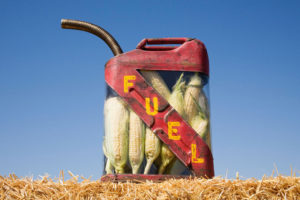From the Soundings Trade Only blog, by Reagan Haynes. Original post here. Let’s hear your thoughts on this subject.
There was testimony once again on Capitol Hill regarding the Environmental Protection Agency proposal that would — for the first time since the Renewable Fuel Standard passed in 2007 — decrease the amount of biofuel required in the overall fuel supply.
The Senate Committee on Environment and Public Works met Tuesday to hear testimony from and ask questions of several stakeholders on both sides of the proposal.
“The truth is, we have hit the ethanol blend wall,” Chris Grundler, director of the EPA’s Office of Transportation and Air Quality, told the committee. “We are acknowledging the blend wall has been reached. We’re making an estimation of a reasonable amount of ethanol that can be consumed with the current system in place.”
The “blend wall” is the term given to the amount of ethanol that can be blended into fuel with existing infrastructure that will not damage small engines and marine engines.
“Fuel economy improvements and other factors have resulted in lower consumption of gasoline,” Grundler said. “If gasoline demand continues to decline … increasing the amount of ethanol in the fuel supply will result in higher concentrations of ethanol.”
Grundler wouldn’t say whether exceeding the blend wall would increase gasoline prices, but he did say that “infrastructure clearly needs to adapt if we’re going to use higher blend walls. We didn’t think it would be feasible to reach that level of infrastructure for 2014.”
The debate about increasing the amount of ethanol in gasoline beyond 10 percent — which largely comes down to a diminishing demand for gasoline and a growing pushback on the negative effects of E15 and higher blends on engines — calls into question the mandate, which does not require an increase of biofuels or ethanol on a percentage basis. Proponents of higher-blend ethanol fuels say technology should keep up to accommodate the higher concentration.
Higher blends of ethanol have been proven to be bad for marine engines, said Sen. Sheldon Whitehouse, D-R.I., and that affects constituents. “When you’re out in the ocean that’s no time to be messing around with your engine,” Whitehouse said.
Sens. Ben Cardin, D-Md., and David Vitter, R-La., are planning to draft further bipartisan legislation to amend the Renewable Fuel Standard. Both senators say they are committed to further exploring biofuels, but don’t want to continue increasing the level of ethanol in the fuel supply, said John McKnight, environmental and safety compliance director for the National Marine Manufacturers Association.
The NMMA will discuss the legislation with both senators’ staff so the marine industry’s concerns are addressed.


